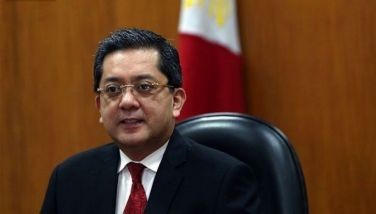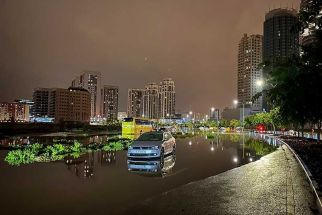7 things Duterte was expected to discuss at his fifth SONA (but didn't)
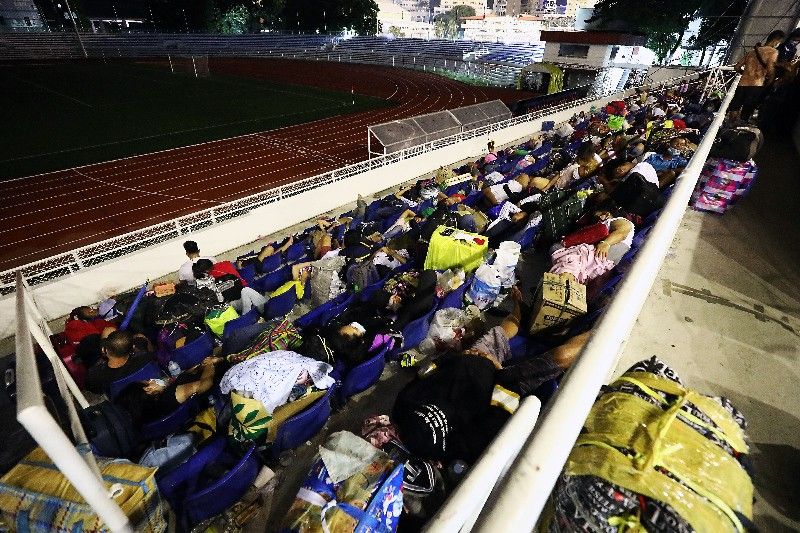
MANILA, Philippines — Rodrigo Duterte's penultimate State of the Nation Address was supposed to bring relief to a multitude of Filipinos shaken by months of quarantine, a ravaged economy and a worsening pandemic.
After the better part of two hours, however, some sectors were left disappointed after the chief executive's longer address saw no mention of any specific policy agenda for pandemic recovery and beyond.
The nation witnessed the president threatening telecoms, hitting back at his critics, expressing apprehension in asserting the country's legal victory in the West Philippine Sea and claiming that martial law in Mindanao ended without abuses by the police and the military—much like his televised late-night addresses.
Here's a brief list of what sectors expected to hear, and didn't.
1. Stimulus package and recovery roadmap
Through lengthy asides on illegal drugs and a call to reimpose death penalty by lethal injection, the chief executive did not spend much talking about what happens next in the wake of increasing coronavirus infections.
Malacañang itself said the government's recovery plan would be "unveiled" at the chief executive's fifth SONA, and the president's own communications team said in a statement that Duterte would talk about "proposed measures to strengthen the country’s healthcare system and to improve the delivery of the government’s assistance to the vulnerable sectors."
ALSO READ: Recovery roadmap 'missing' in Duterte's SONA
He mentioned the need to build up the country's institutional capacity in fighting future pandemics and natural disasters, but did not identify priority areas or particular policies to do so. He also skipped mentioned a proposed stimulus package for bleeding business.
Former National Task Force adviser Tony Leachon also later said that he expected President Rodrigo Duterte's SONA to be "emotional and uplifting" and empathize with "the plight of COVID sufferers devoid of the granularity of the plan."
2. Steady hand for stranded individuals in a crowded stadium
Though he mentioned that he "issued Executive Order No. 114 to institutionalize the Balik Probinsya, Bagong Pag-Asa Program," the president did spare airtime for the thousands of LSIs still waiting on the government's Hatid Tulong program at the Rizal Memorial Stadium.
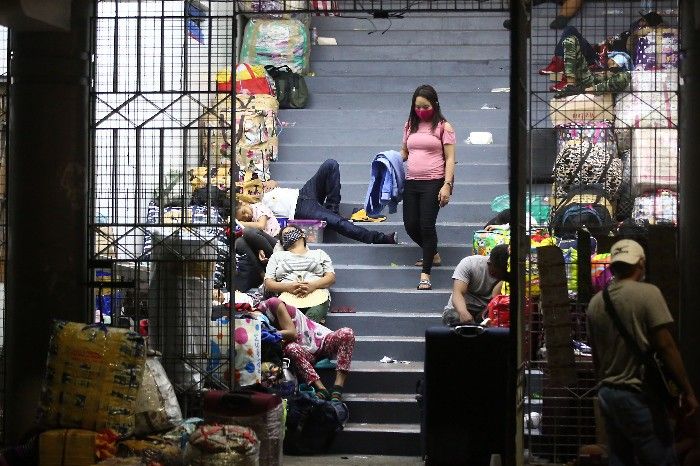
Despite law enforcement's constant chiding of Filipinos for being "pasaway," the government's own setup for the stranded did not seem to care much for social distancing.
On the very same day as his speech, news broke that nine LSIs among the thousands in the stadium contracted the virus.
3. A plan to stem underemployment and unemployment
In the beginning of June, the labor department and the Philippine Statistics Authority recorded a 17.7% unemployment rate, or around 7.3 million unemployed Filipinos, surpassing the 10.3% unemployment rate during the 1998 recession.
This figure was only further bloated once Congress voted to junk the franchise application of ABS-CBN Corp, which sealed the fate of over 11,000 more workers and guaranteed that they, too, would be unemployed by August.
He took the time to hit back at the Lopez family of ABS-CBN within the starting minutes of his speech, claiming that he was among their "casualties" during the 2016 elections he won.
Duterte did mention micro, small to medium enterprises in his speech, though a proper course of action was still for the most part undefined.
"The government will intensify its efforts to help businesses, especially our micro, small and medium enterprises or MSMEs, by providing responsive government assistance and services, capitalization, and business operations support as we adapt to the next normal," he said.
4. The road ahead for public transportation
Commuter woes have been the new norm ever since the government's coronavirus task force loosened quarantine rules to general community quarantine in June.
RELATED: Familiar transportation woes as Metro Manila lurches to 'new normal'
Data from Summit Outdoor Media’s Vehicle Recognition Devices and Dashboard in July found that much more private vehicles have been on the road ever since the enhanced community quarantine elapsed, leading to constant congestion along Metro Manila's thoroughfares once more.
"Contrary to most forecasts saying fewer people will be out and about, traffic in the metro has actually increased post-ECQ. As of June 22, our collected vehicle data from various parts of the metro show that there's an astounding 162% increase in daily vehicle traffic from the numbers during the ECQ. This is actually greater than the traffic count pre-ECQ and can go even go higher as traffic increases by 39% day by day," Summit Outdoor Media's report said.
With most traditional PUJs still prohibited from plying the roads, relief is still nowhere in sight for commuters, many of whom have begun riding bicycles to their workplaces.
"I know that many of you are worried not only about health and safety but also about our ability to move around and ride public transportation; the depletion of your savings due to the rising cost of goods; and the loss of your incomes due to uncertainties in your jobs and livelihood," Duterte acknowledged.
He later promised: "I assure you that your government will [squarely address] these problems and challenges to overcome them and proceed to the ‘new normal’" though he did not specify how.
RELATED: Shuttles for workers impounded for 'lack of contract' amid transportation shortage
After this, though, he went off-topic and brought up the topic of crime, saying: "Let me assure you, for as long as I am president, There can never be a runaway crime in any of our cities. Hindi ako papayag ng ganun. I can assure you we will remain peaceful."
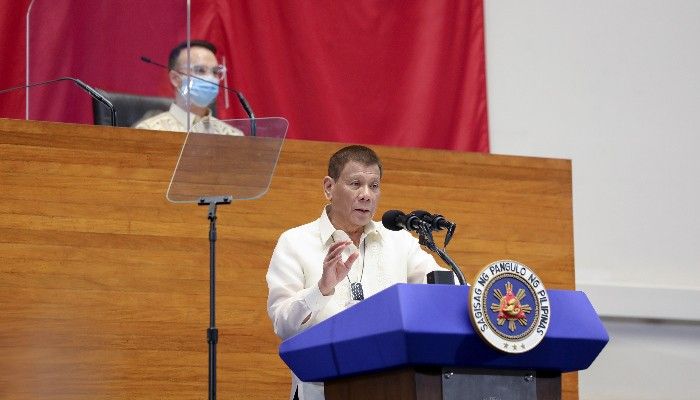
In the absence of mass transportation at the onset of the general community quarantine, Malacañang said in the beginning of July: "We also reiterate our appeal to the private sector to provide shuttle services to their employees. What the administration is doing is balancing the need to revitalize the economy so that we can have livelihood and jobs while looking out for and protecting the health and safety of the public as well."
5. The how in blended learning
As it stands, the education department's blended learning proposal has already drawn much criticism for being "anti-poor" with many groups pointing out the burden that the additional costs of buying radios, television sets and other gadgets would place on poor families.
In an earlier statement, peasant women's alliance the National Federation of Peasant Women said: "Poor families are hounded daily by the dilemma of where to find food for their next meal, and here comes the ‘educated but insensitive’ officials bragging about a system which is intensive on gadgets and costs."
RELATED: Peasant group slams DepEd blended learning amid reports of suicide among rural youth
Rather than outline a plan for the students who feared they would be left behind by the shift in education, the president asserted: "Life that is lost is lost forever. Courses that are not substantial can be supplemented. Education that is delayed can be recovered."
He went on to say that "TV frequencies reverted back to the government for whatever cause or reason [shall be used] to provide uninterrupted quality education to our children in our shift to e-learning"—implicitly referring to the now-vacant broadcast frequencies left behind by ABS-CBN Corp.
Duterte has made it clear that he believes the DepEd's proposal is workable, though it is unclear whether or not the government has the infrastructure and equipment to use the frequencies previously used by the broadcast giant.
As of this writing, the National Telecommunications Commission is also still yet to issue a ruling on what it plans to do with the company's frequencies.
5. An explanation for signing the anti-terror bill
With backlash for the controversial bill, now a law, still resounding, the president could have acknowledged the concerns of thousands of Filipinos that feared the law would be used to shrink spaces for dissent.
Despite certifying it as urgent earlier, he was relatively silent about it during his speech, where he spent a good amount of time talking about drugs, the role of the police and military in a pandemic, and the success of martial law in Mindanao.
Lawmakers and groups across a multitude of sectors both local and international repeatedly pointed out that the Philippine government's militaristic response did little to empower citizens and actually dent the coronavirus pandemic.
Just a day before the president's SONA, a community leader in Pandi, Bulacan was arrested and copies of alternative news magazine Pinoy Weekly were seized because they "taught people to go against the government."
Police denied this narrative, saying the papers were of a certain "pinoystreet.org" and were voluntarily surrendered.
In earlier interviews with Philstar.com, rights monitors Human Rights Watch and Karapatan said that the trends toward intensified enforcement on the barangay level leave the door open for more instances of police abuse in the wake of existing cases over the quarantine and the implementation of the Anti-Terror Bill.
6. An approach to environmental concerns
In a statement after the president's address, Greenpeace Country Director Lea Guerrero said: "The COVID pandemic is happening against a backdrop of environmental destruction and the climate crisis that has been going on long before this pandemic, and—unless things change for the better—will persist and worsen well into the future."
"The lack of any concrete plans on addressing climate is reflective of the admin’s narrow environmental agenda, which is still holding up the Boracay clean-up—a drastic military solution devoid of any stakeholder consultation—as a showcase of its environmental programs," she said.
"Alongside all this, the government needs to realize that protecting the environment also means protecting the rights of people and communities--their right to life, health, livelihood, and the right of present and future generations to a healthy environment and a stable climate. We repeat our calls for the government to put people at the center of planning and decision making, and to promote people participation, instead of silencing criticism and dissent, in order to achieve a better normal," she added.
Accomplishments and agenda, in his own words
Instead of addressing the litany of issues facing Filipinos, the president at one point even took the time to praise his own approach and performance in fighting the virus, saying: "When the pandemic struck, I chose to prioritize life over all other considerations by experts... Even if the numbers were much lower, it would have been worth the lives saved."
Just later in his speech, the president called for the revival of the death penalty by lethal injection.
The president also once told police to "shoot dead" any quarantine violators holding protests.
FACT CHECK: Duterte says he 'hates' ordering police to arrest violators
Duterte only called a full travel ban on mainland China at the beginning of February, almost two months after the virus first emerged—something he never acknowledged and even once lied about, saying the country was one of the first in Asia. The month before, he said that instituting a travel ban could affect diplomatic relations with China, calling the idea "xenophobic."
The president also once told police to "shoot dead" any quarantine violators holding protests.
"Admittedly our implementation of the social amelioration program was not perfect and some opportunists turned crisis into opportunity," he said.
- Latest
- Trending




























